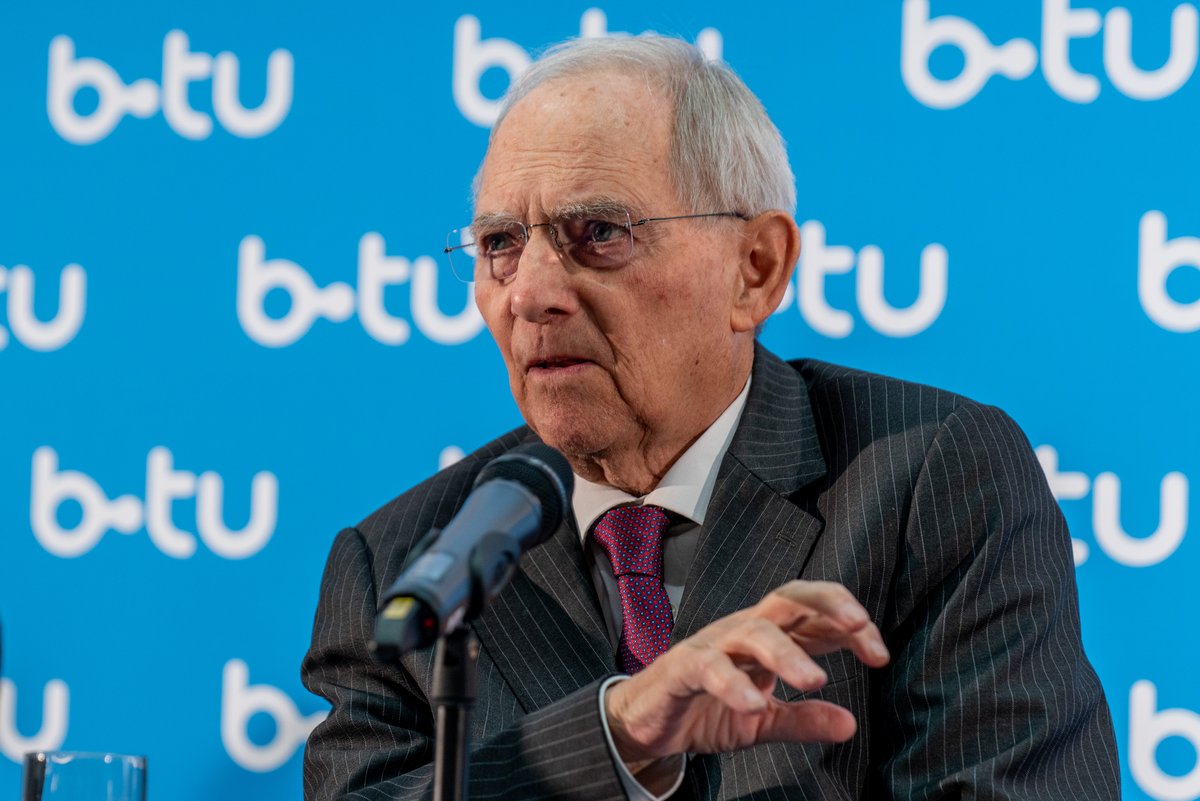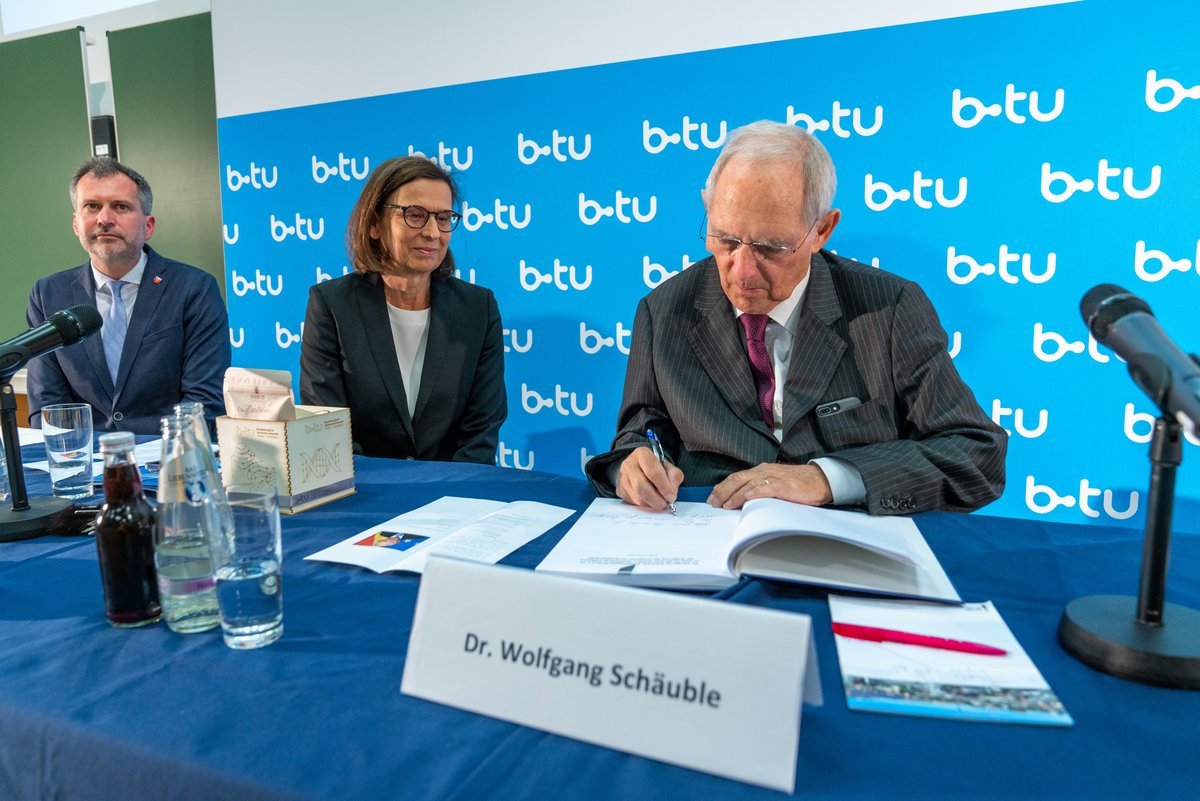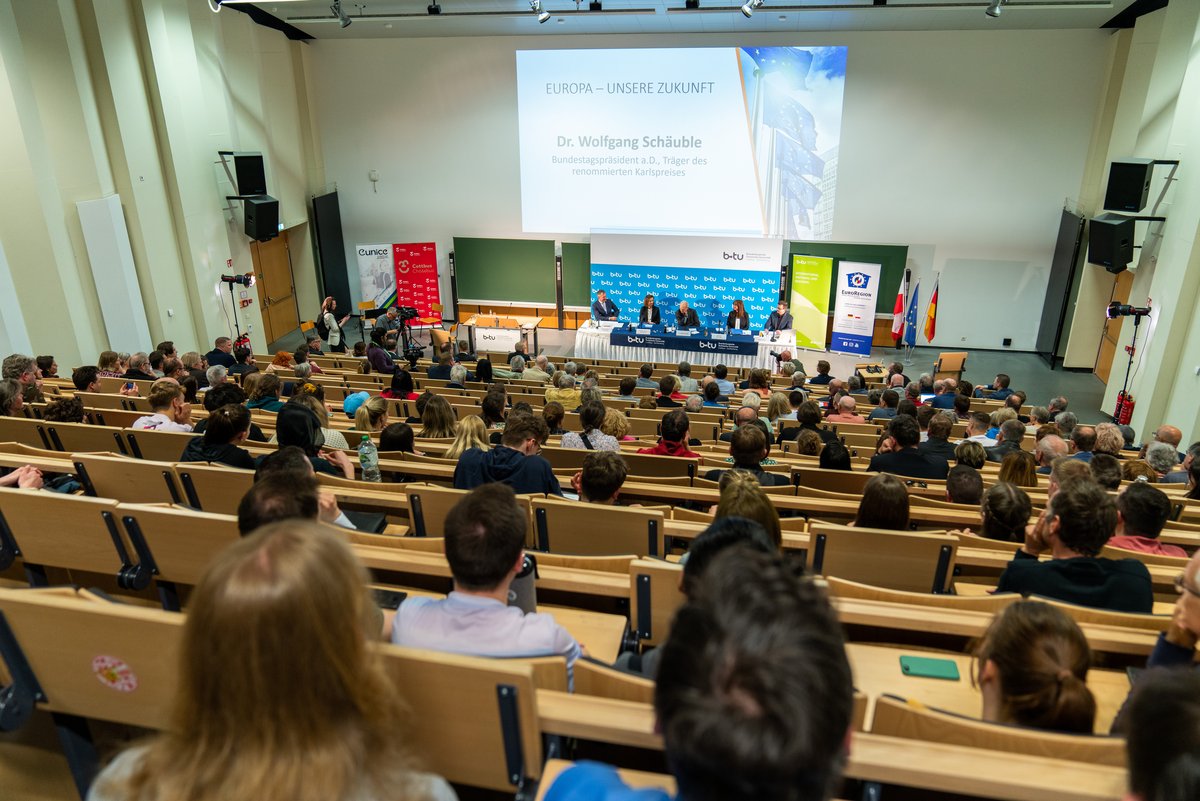"Europe is our future!"
The place and date of his lecture were chosen with care: the BTU as a university with around 40 percent international students with its proximity to neighboring Poland, May 9 as Europe Day, on which Robert Schumann presented his idea for a new form of political cooperation in Europe in 1950 and which at the same time marks the end of the Second World War in 1945.
Against this background, the winner of the International Charlemagne Prize considers it a "really great decision" that this year's prize was awarded to the President of Ukraine, H.E. Volodymyr Selenskyi, and to the Ukrainian people. While Europe is "first and foremost a peace order," he said, "you have to be able to defend yourself so you don't have to defend yourself." When asked whether Putin would stop waging war if he were successful in Ukraine, Schäuble continues, no one would probably say yes.
He explicitly praises Poland for the support it has provided to Ukraine and pleads for the country to be seen on "equal footing." This applies to all European nations among themselves. Only then would we be able to move forward together.
Asked whether Germany should not position itself closer to France, he clearly says: "Yes, but not only to France, but also to Poland." In general, he sees the Poles in a key role. It was a mistake, he says, that Olaf Scholz and Emmanuel Macron did not include Polish Prime Minister Mateusz Morawiecki in their Ukraine visit.
In the course of the evening, the former German president draws an arc from Africa, which he sees as "a piece of our European destiny," to advocating the abandonment of the unanimity principle in the European Union, to "know-it-alls" who also exist at the European level and the Western democracies, all of which he currently sees in crisis. With regard to cross-border regions, Schäuble advises promoting bilingualism and using health systems across borders.
Democracy and peace in Europe must be "won anew every day through commitment." In Schäuble's view, this is the great challenge. According to his assessment, the Germans are often perceived internationally as arrogant in this regard. It is the task of all of us to change this. In general, he says, "Tasks give us the courage to face the future. We have a good future if Europe has a good future."
The Cottbus Europe Talks are intended to be a high-profile forum for the exchange of ideas about Europe that is close to the people. The aim of the series of events is to strengthen the interest of civil society actors* in the European Union. The Brandenburg University of Technology Cottbus-Senftenberg (BTU), the city of Cottbus/Chóśebuz and the Euroregion Spree-Neiße-Bober e.V. with Europe Direct Guben have jointly initiated the discussion format. There will be further dates of the Cottbus Europe Talks in loose succession.
Specialist contact
Zentrum für Rechts- und Verwaltungswissenschaften (ZfRV)
T +49 (0) 355 69-2069
Jan.Hoffmann(at)B-TU.De



